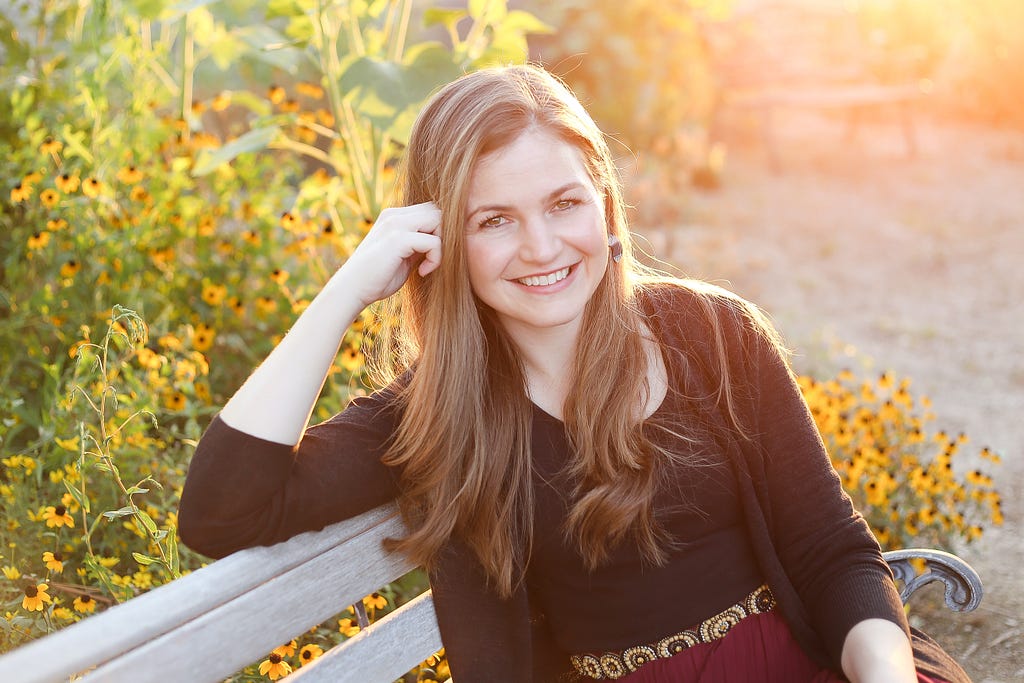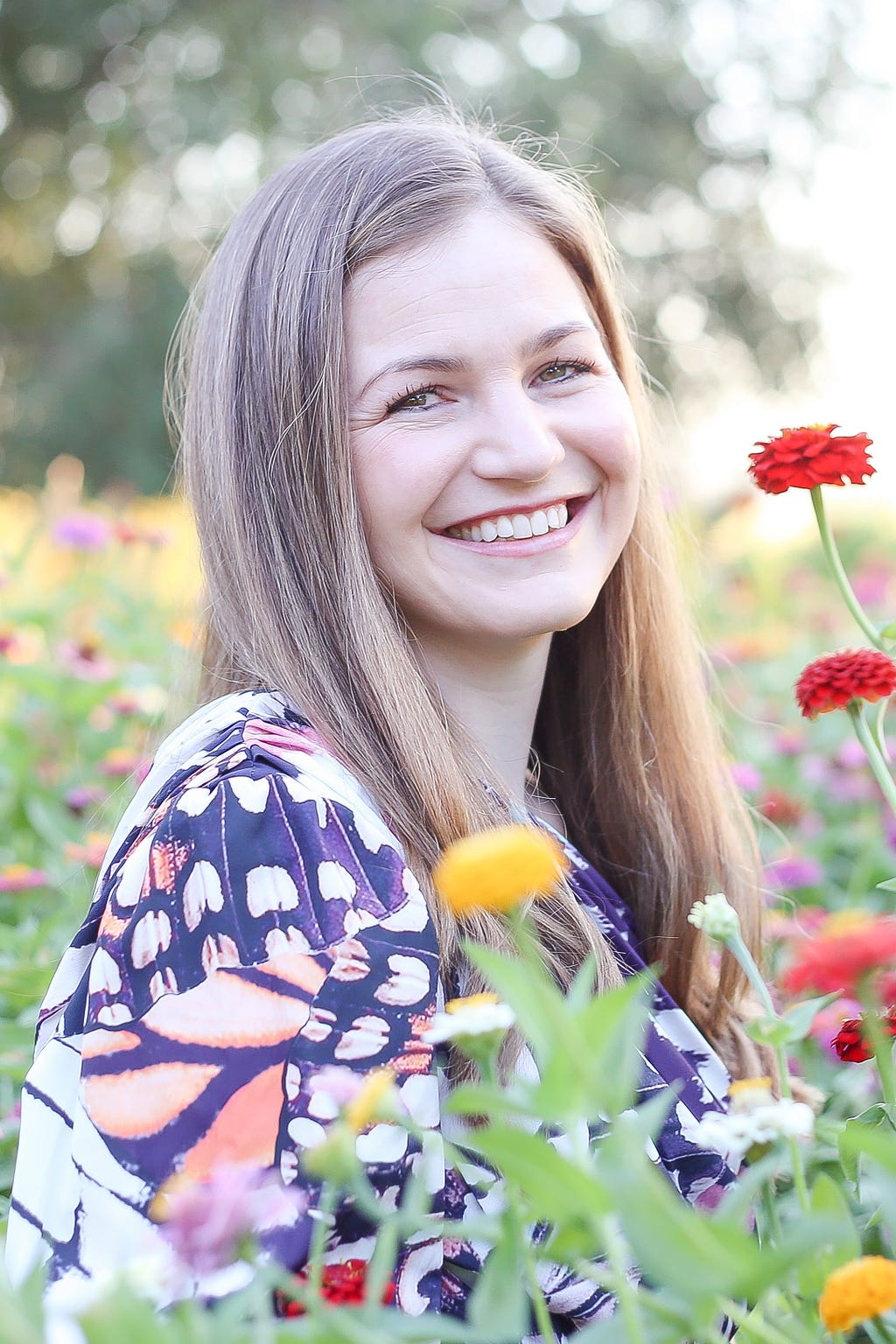Music Stars Making a Social Impact: Why & How Stephanie Leavell of Music For Kiddos Is Helping To Change Our World

Be ready for a long road, and commit to consistently creating and promoting your music for a minimum of two years before expecting much traction. Utilize social media, email marketing, and streaming strategies to the fullest extent, and make sure to do something to promote your music every single day.
As a part of our series about stars who are making an important social impact, I had the pleasure of interviewing Stephanie Leavell.
Born and raised in Boise, Idaho, Stephanie Leavell is an award-winning singer/songwriter, instrumentalist, music therapist, and the creator of Music for Kiddos, an online education company that provides high-quality music resources and continuing music education for music therapists, music educators, and parents. Stephanie pursued harp studies at Berklee College of Music, where she joyfully embraced music therapy as her true calling. Passionate about using music to help kids succeed, she specializes in working with kids from infancy through age 10.
Thank you so much for joining us on this interview series. Can you share with us the backstory that led you to this career path?
In 2009, I was finishing up my music therapy training with an internship at Massachusetts General Hospital, and was working with a music therapist who masterfully improvised songs with kids receiving cancer treatment. I was captivated by the way she could use humor, rhythm, melody, harmony, play, and more, to connect with kids and help them cope with their treatment. It was a life-changing experience in many ways, and I took those lessons with me into my first decade as a music therapist, working with kids at a children’s hospital and in a sensory integration clinic. After a cross-country move, I found myself as a preschool music teacher and went from working with kids one-on-one to large groups. It was a new and exciting challenge, and one that led me to writing and sharing songs with other music therapists and educators. Within a couple of years, I had built an online education company that allowed me to do my dream job: writing songs for kids.
It has been said that our mistakes can be our greatest teachers. Can you share a story about the funniest mistake you made when you were first starting? Can you tell us what lesson you learned from that?
When you work with kids, it’s nearly impossible to make it through a day without some kind of hilarious mishap. On my first day as a preschool music teacher, I mistakenly thought I could improvise songs with the kids and had a very loose plan for what we might do. My mistake! With 24 energetic and eager kids looking up at me, I ran out of ideas 6 minutes in (with 24 minutes left), was shell-shocked, and didn’t know what to do next. Needless to say, I never showed up without a plan ever again!
What would you advise a young person who wants to emulate your success?
Be ready for a long road, and commit to consistently creating and promoting your music for a minimum of two years before expecting much traction. Utilize social media, email marketing, and streaming strategies to the fullest extent, and make sure to do something to promote your music every single day.
Is there a person that made a profound impact on your life? Can you share a story?
There are two music therapists who’ve had a profound impact on the way I approach music with kids. One is Lorrie Kubicek, my internship supervisor at Massachusetts General Hospital, and the other is Kimberly Khare, a professor at Berklee College of Music. They saw some kind of spark in me and helped me find my confidence and creativity.

How are you using your success to bring goodness to the world? Can you share with us the meaningful or exciting causes you’re working on right now?
It’s widely reported that there’s a children’s mental health crisis and kids are in desperate need of genuine connection and opportunities to express their feelings. My new album Made To Bloom features songs like “If You Need To Cry”, a song to show kids that big feelings are okay and they are loved and accepted for exactly who they are.
Can you share with us a story behind why you chose to take up this particular cause?
There are a lot of people close to me, including my own daughter, who struggle with anxiety. I see the daily struggles and I also see the beautiful humans behind the anxiety.
I have also seen first hand the way that music can be a grounding and supportive presence for kids and adults in the midst of mental health struggles. It’s a unique and beautiful outlet and I’m committed to using my musical gifts to support kids in that way.
Can you share with us a story about a person who was impacted by your cause?
I can think of dozens of kids immediately, but one that comes to mind is a music therapy client I worked with many years ago. This child was non-speaking but an incredible communicator in music. We used to play the piano together, sometimes for an entire hour without a break, and the connection and musical communication between us was unlike anything else I’ve experienced. It was unique for this person to be able to connect with someone outside of their family in this way and it was a non-traditional but beautiful connection.
Are there three things or are there things that individuals, society, or the government can do to support you in this effort?
#1: More music in schools. #2. Access to open-ended music experiences like songwriting and improvisation. #3: Greater access to live music experiences for kids.
Why do you think music in particular has the power to create social change and create a positive impact on humanity?
There is so much non-verbal communication and emotion present in music. Each element of music (melody, harmony, rhythm, groove, lyrics, etc.) can communicate emotions, but each of those emotions are up to interpretation by the listener. So the right song heard by someone in the right moment can be an incredibly deep and cathartic experience.
What are your “5 things I wish someone told me when I first started”?
1. It takes a long time and a lot of work to have an impact. 2. In music, there’s no such thing as “perfect”. Create anyway! 3. Success comes alongside a lot of failures. Keep going. 4. Be ready to pivot and be open to changing your plan along the way. 5. Sometimes the thing that feels “easy” to you is the thing you need to share most.
You’re a person of enormous influence. If you could start a movement that would bring the most amount of good to the most amount of people, what would that be? You never know what your idea can trigger.
I am very excited that many states will soon have universal pre-k and access to preschool for more 3 and 4 year olds. I would love to see interactive and playful music experiences be a huge part of pre-k, with less emphasis on technology and more emphasis on live music-making and open ended music experiences.
Can you please give us your favorite life lesson quote? And can you explain how that was relevant in your life?
I love the Anne Frank quote “How wonderful it is that nobody need to wait a single moment before stating to improve the world,” and find it inspiring to know that we each have unique ways to contribute, no matter how big or small.
We are blessed that some very prominent names in Business, VC funding, Sports, and Entertainment read this column. Is there a person in the world, or in the US with whom you would love to have a private breakfast or lunch, and why? He or she might just see this if we tag them.
I would love to meet Bill Sherman, the music director of Sesame Street. Growing up, I watched that show every day and it was my first glimpse into the importance of music as a tool for connection and learning. I continue to be inspired by the work they do for kids!
Thank you so much for these amazing insights. This was so inspiring, and we wish you continued success!
Music Stars Making a Social Impact: Why & How Stephanie Leavell of Music For Kiddos Is Helping To… was originally published in Authority Magazine on Medium, where people are continuing the conversation by highlighting and responding to this story.
